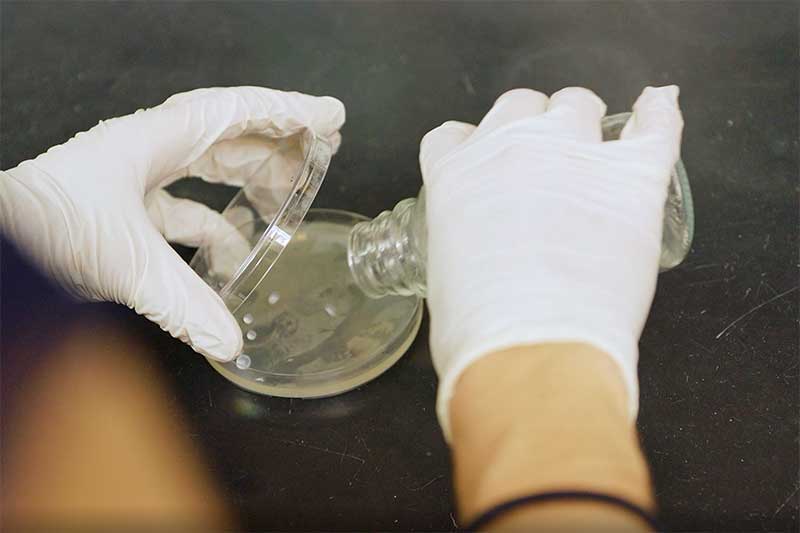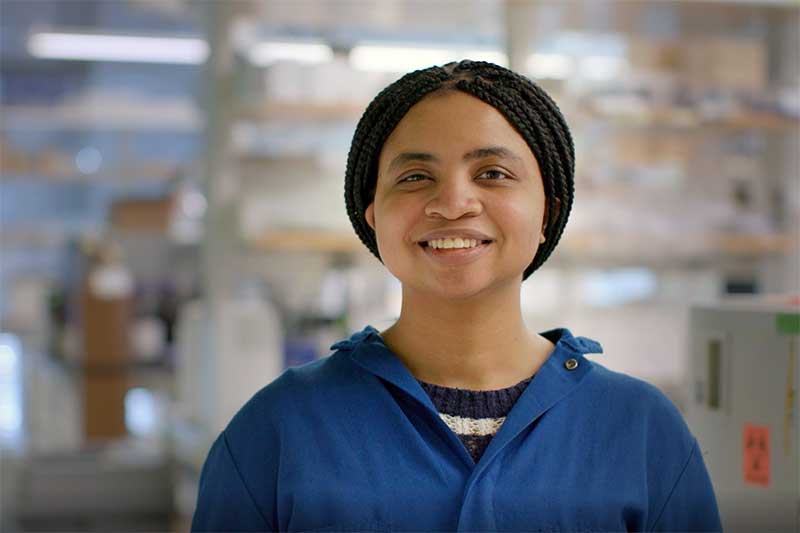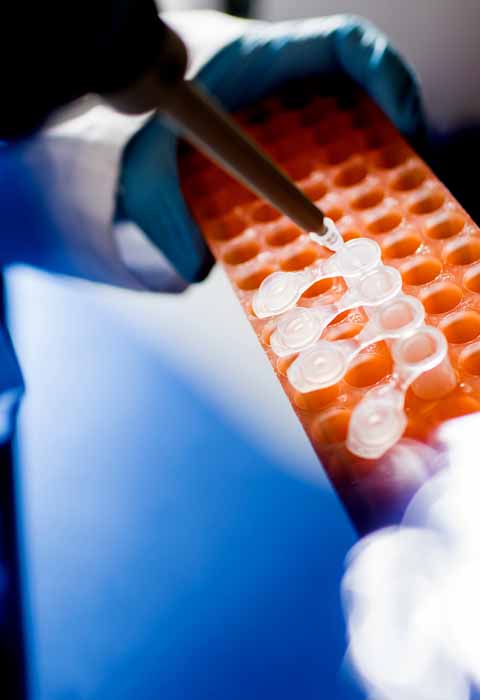
PhD in Chemical Engineering
PhD in Chemical Engineering
Overview
The graduate program in chemical engineering offers students the opportunity to work on cutting-edge research that tackles pressing challenges facing our society and our planet in areas such as biomedicine, energy, security, and sustainability. Students also develop an in-depth understanding of the principles of chemical engineering through core coursework and applied electives. The overarching goal of this rich research and educational experience is to mentor and to equip our students to become future leaders in engineering and science, while simultaneously promoting scholarly achievement for both the faculty and students.
Innovative Curriculum
Doctoral candidates are able to select thesis topics from a diverse range of faculty research interests. The department’s research focus areas are Biomolecular and Biomedical Systems; Complex and Computational Systems; Energy and Sustainability; Engineering Education and Pedagogy; and Materials and Nanotechnology. With a premier location in downtown Boston, research in the department leverages the wealth of collaborations with neighboring universities, hospitals, medical centers and industry. New or prospective graduate students can learn about ongoing research topics from individual faculty members, faculty web sites and graduate student seminars. Graduate student seminars, where our students present the results of their research, are held on a regular basis and provide an interactive forum for learning and exchanging ideas.
Learning Outcomes
- ability to identify, formulate, and solve complex engineering problems.
- ability to explain and apply engineering design principles, as appropriate to the program’s educational objectives.
- Use appropriate methods to analyze research data and interpret the findings.
- Effectively communicate the work to its intended audiences, through professional written and oral communication skills.
- Define research objectives.
- Choose and use appropriate research methods to achieve the defined objectives.
- Critically analyze one’s own research work and existing scholarship in the field, including identifying gaps in knowledge.
Experiential Learning
Northeastern combines rigorous academics with experiential learning and research to prepare students for real-world engineering challenges including industry experience as part of the co-op program or an internship. The Cooperative Education Program, also known as a “co-op,” is one of the largest and most innovative in the world, and Northeastern is one of only a few that offers a Co-op Program for graduate students. Through this program, students gain professional experience employed in their field of interest as part of the academic curriculum. Northeastern has over 3,000 co-op employer partners in a wide variety of organizations, from large companies to entrepreneurial start-ups. Students can also participate in the university’s Experiential PhD program.
Academic Advising
We have a variety of advisors to help make your graduate career a success, so use the link below to determine which one will help you the best.
Admissions & Aid
Ready to take the next step? Review degree requirements to see courses needed to complete this degree. Then, explore ways to fund your education. Finally, review admissions information to see our deadlines and gather the materials you need to Apply.
Student News

Becoming Intentional at Dennis Lab with Warisha Tahir
Warisha Tahir, PhD’27, chemical engineering, currently works at Dennis Lab under Professor Alison Dennis. With a focus on positive human impact, Tahir will use her skills and experience to develop new innovations in the public health realm.
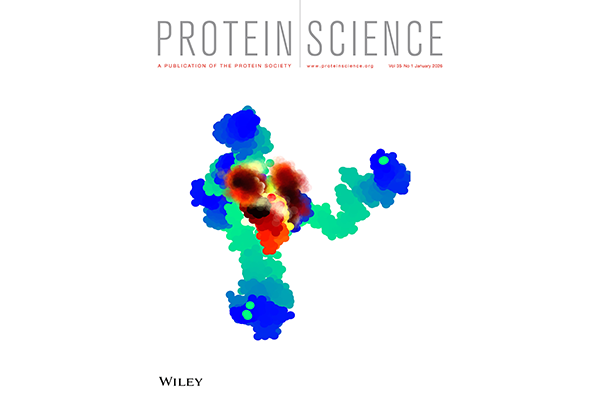
ChE Research Team Featured on Protein Science Cover
Natesan Mani, PhD’26, chemical engineering, Raghavendran Suresh, MS’23, chemical engineering, and ChE/COS Assistant Professor Srirupa Chakraborty had their research on “Cleaved versus Uncleaved: How furin cleavage reshapes the conformational landscape of SARS-CoV-2 spike” featured on the cover of Protein Science.
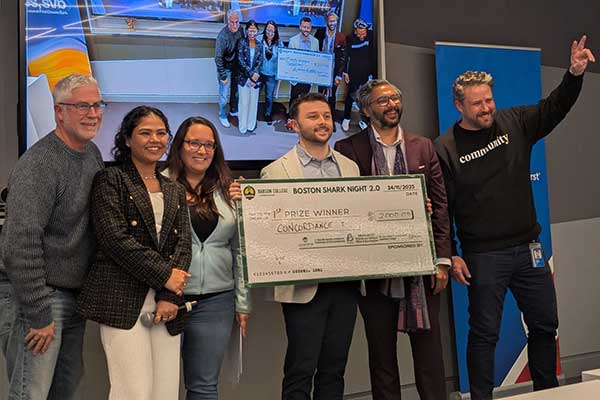
Chemical Engineering PhD Student Wins First at Shark Night 2.0
Justin Hayes, PhD’25, chemical engineering, founder and CEO of Concordance Therapeutics, took first place at Boston Shark Night 2.0.
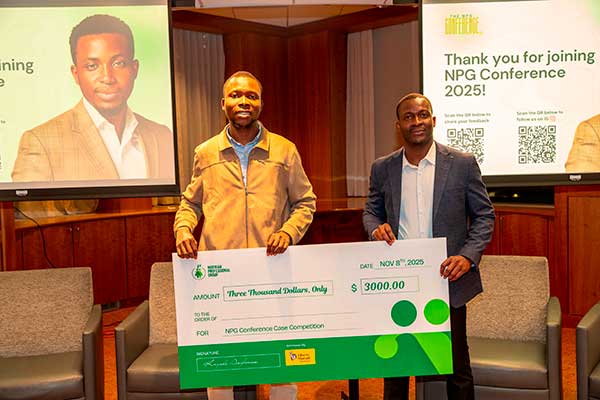
Two ChE PhD Students Win Big at Competition
Qudus Rafiu, PhD’28, and Lawrence Ajayi, PhD’27, chemical engineering, attended the same undergraduate university but did not meet until they happened to join the same lab during Lawrence’s master’s at Ohio University. Since then, they have become close friends and have worked together in research and studies. Recently, their teamwork helped them win the second-place prize in the NPG x Liberty Mutual Business Case Competition.
